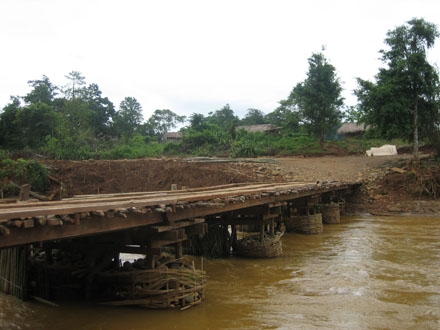So much goes on in Burma these days that it is difficult to keep up with all of the changes. There are many reasons to be optimistic yet still there are nagging doubts about whether the country’s tentative glasnost will go terribly wrong.
Today, to help clarify some of the key issues, I have three pieces to draw to New Mandala readers’ attention.
First is an account by The Myanmar Times detailing Aung San Suu Kyi’s recent visit to Myitkyina, capital of the war-torn Kachin State. It is a very useful report providing much needed context around the issues in what is now the country’s most unstable region.
The second is the lengthy and very personal story of Aung Zaw, the editor of The Irrawaddy, about his first visit home to Burma in 24 years. He goes to Yangon and Naypyidaw during his five days in the country. Aung Zaw’s amusement with the use of “Mingalabar” as a standard greeting marks the lighter end of his commentary. The other is defined by a tough-minded assessments of the media landscape and the officials who seek to control it. It is well worth reading in full.
Third is a piece that I wrote titled “Burma and the road to normality”. It seeks to explain the overall political situation facing the country as the old regime is gradually unravelled and replaced. I hope it strikes a fair balance between critical insight and the expectation that we are now seeing the start of a better deal for Burma’s people. This article will be published in The Canberra Times on Saturday.
Readers with other sources to suggest can certainly bring them to our attention in the comments. There is plenty that needs to be discussed during this crucial period.
 Facebook
Facebook  Twitter
Twitter  Soundcloud
Soundcloud  Youtube
Youtube  Rss
Rss 